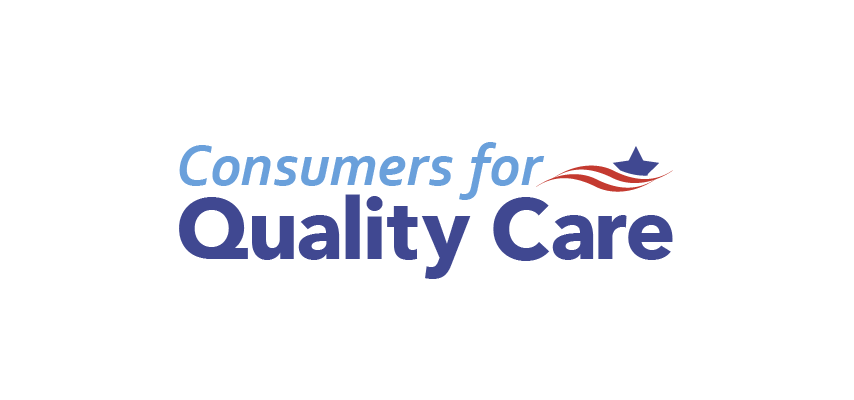Patient Advocacy Coalition Raises Concern Over New Medicaid Rule
By Consumers For Quality Care, on July 15, 2020

FOR IMMEDIATE RELEASE
July 14, 2020
Contact: press@consumers4qualitycare.org
WASHINGTON – Today, Consumers for Quality Care (CQC) submitted comments to the Centers for Medicare & Medicaid Services (CMS) on a New Medicaid Proposed Rule (CMS 2842 P) which would erode the availability of cost-sharing assistance and increase out-of-pocket prescription drug costs for patients.
CQC, a coalition of advocates and former policy makers working to provide a voice for patients in the health care debate as they demand better care, expressed concern that the proposed rule may prevent many vulnerable patients from accessing the care they need by allowing accumulator adjustment programs to proliferate. Accumulator adjustment programs can increase prescription drug costs for consumers at the pharmacy counter by not allowing manufacturer coupons to count towards a patient’s deductible or out-of-pocket maximum.
Below is the full text of the comments submitted to CMS.
###
Dear Administrator Verma,
Thank you for the opportunity to comment on the New Medicaid Proposed Rule (CMS 2842 P). As a coalition of health care advocates who are committed to speaking up for ordinary Americans experiencing challenges in the health care system, Consumers for Quality Care (CQC) is concerned that this proposal will unfairly raise out-of-pocket costs and prevent many vulnerable patients from accessing the care they need.
We are particularly worried that the proposed rule will do harm to consumers when it comes to cost-sharing for prescription drugs.
We were disappointed that the 2021 Notice of Benefit and Payment Parameters (NBPP) allows insurers to bar drug manufacturer coupons that consumers often use to lower their drug costs at the pharmacy counter from counting toward their annual cost-sharing limit. Unfortunately, by requiring that manufacturers include the value of a cost-sharing assistance program when meeting Medicaid Best Price and average manufacturer price (AMP) reporting requirements unless they can ensure the assistance is passed on to patients, the new Medicaid Proposed Rule is likely to further erode the availability of cost-sharing assistance and increase out-of-pocket prescription drug costs for patients.
In the proposed rule, CMS shares its opinion that accumulator adjustment programs result “in the health plan delaying the application of its plan benefit to the detriment of the patient or consumer,” while making policy that will allow the detrimental impact of accumulator adjustment programs to proliferate. Furthermore, the AMP requirement raises the likelihood that this Medicaid proposed rule would spread the detrimental impact beyond Medicaid and into the commercial market.
We believe that cost-sharing assistance should benefit patients, not health plans. As long as health plans and pharmacy benefit managers administer the copay coupons offered to help low- or moderate-income Americans to pay for the drugs they need, accumulator adjustment programs will continue, as CMS states, “generating savings for the plan,” not patients, while hamstringing the ability of drug makers to ensure that the full value of cost assistance is passed along to customers, as the rule would require.
The language in this rule could have significant and far-reaching negative consequences on consumers within the Medicaid program and in the commercial market, potentially resulting in reduced adherence to critical treatments for countless Americans. Many patients who depend on cost-sharing assistance have chronic conditions like cancer and HIV, and the inability to use these coupons could be devastating.
We urge you to exempt the value of manufacturer cost-sharing assistance from Medicaid Best Price and AMP calculations and seek other avenues to ensure the cost-sharing is benefiting patients directly, not health plans.
If you have any questions, please don’t hesitate to contact us.
Thank you,
Consumers for Quality Care
